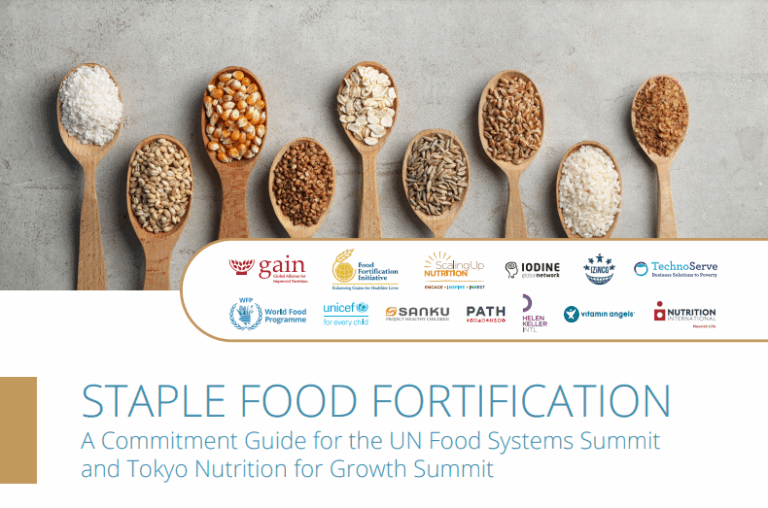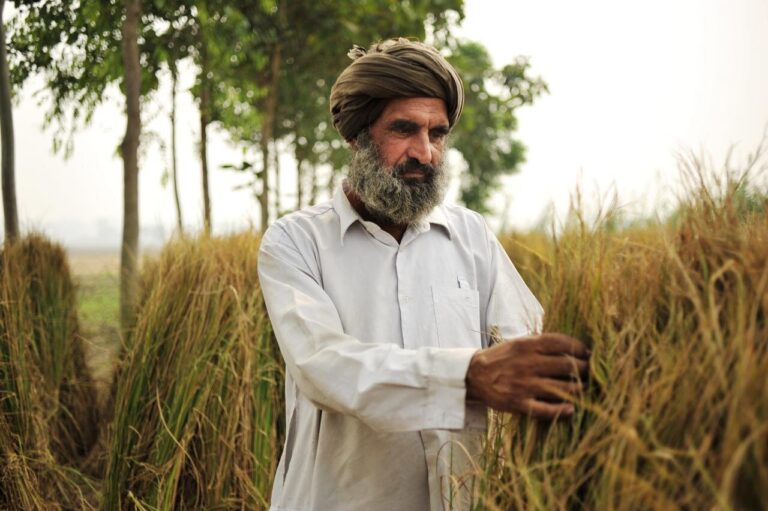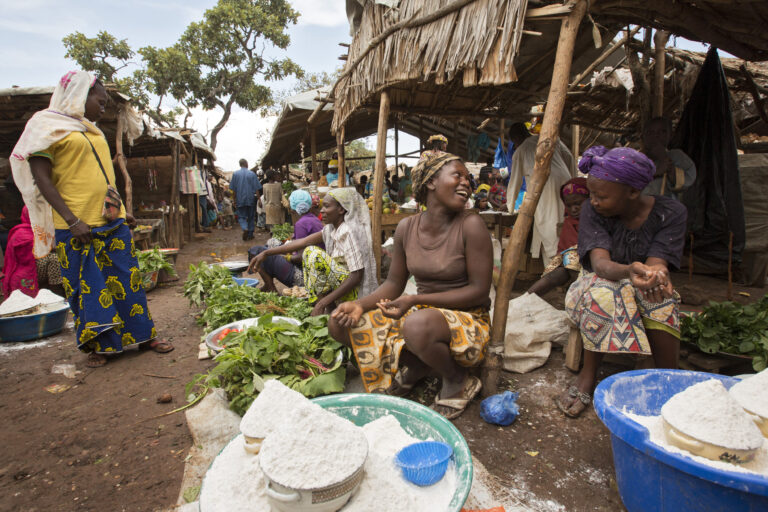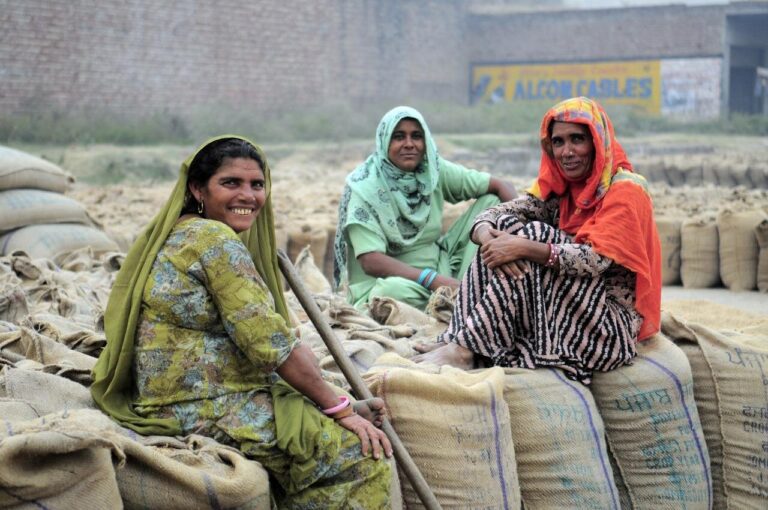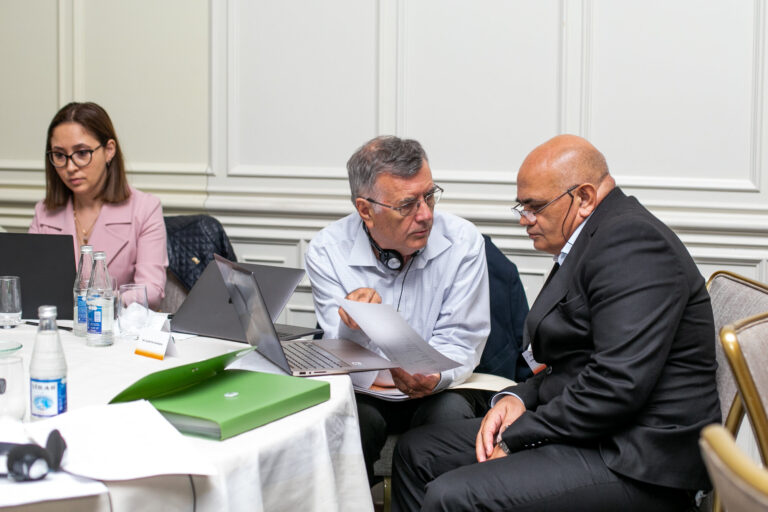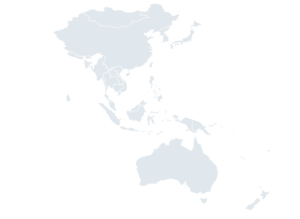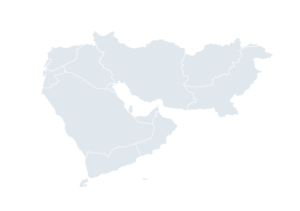Europe
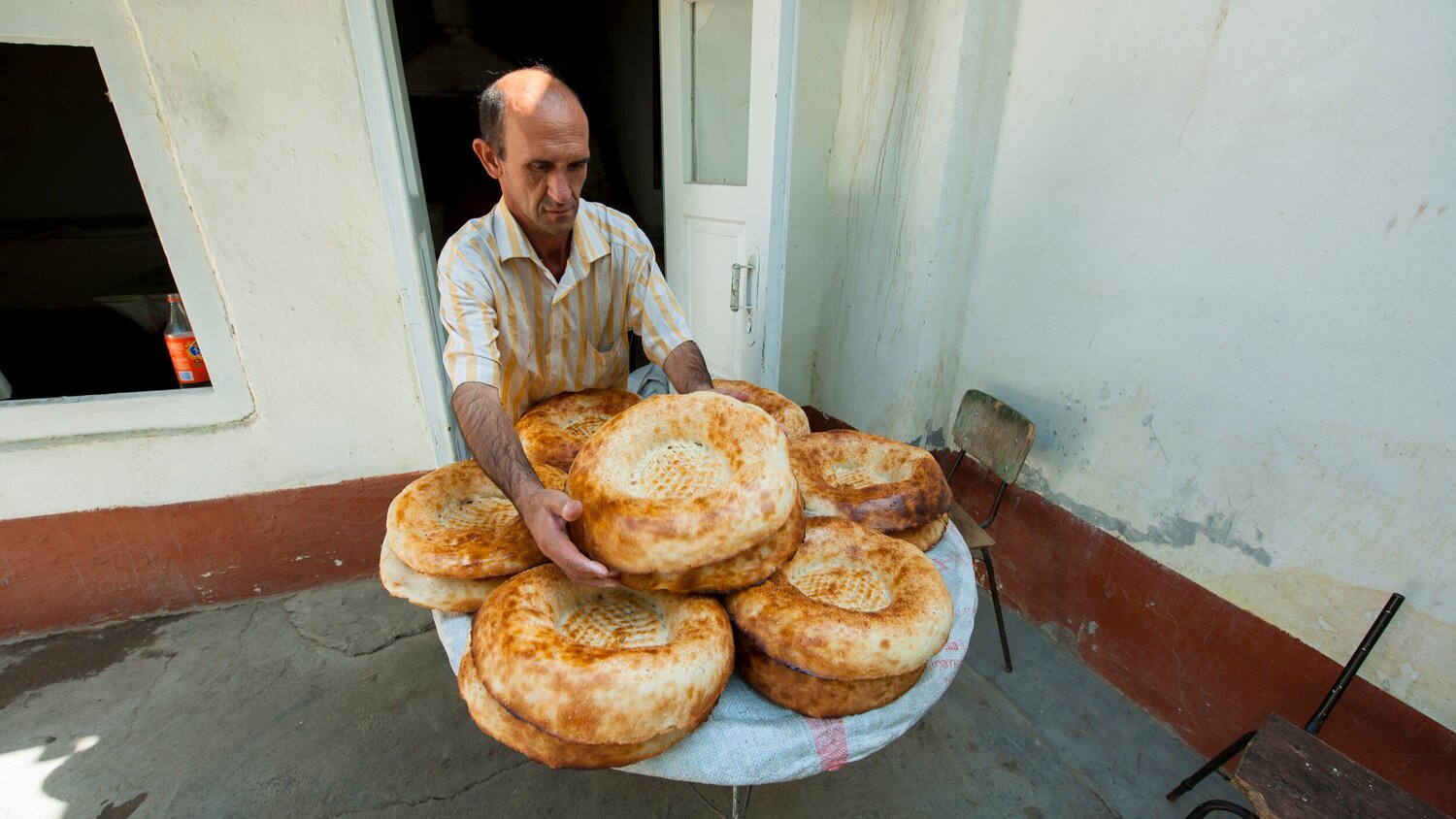
We work in Europe on a regional basis, helping countries develop sustainable action plans for implementing, monitoring, or improving national wheat flour fortification programs. For more information on the unique data-driven approach that FFI uses to prioritize country assistance and support in the region, see our Europe regional strategy.
FFI in Action
In coordination with the Food Safety Agency of the Republic of Azerbaijan, UNICEF, and USAID, FFI led a five-day Training of Trainers workshop where representatives from eight Eastern European countries—Azerbaijan, Georgia, Kazakhstan, Kyrgyzstan, Tajikistan, Turkmenistan, Ukraine, and Uzbekistan—developed skills in planning, implementing, and monitoring wheat flour fortification.
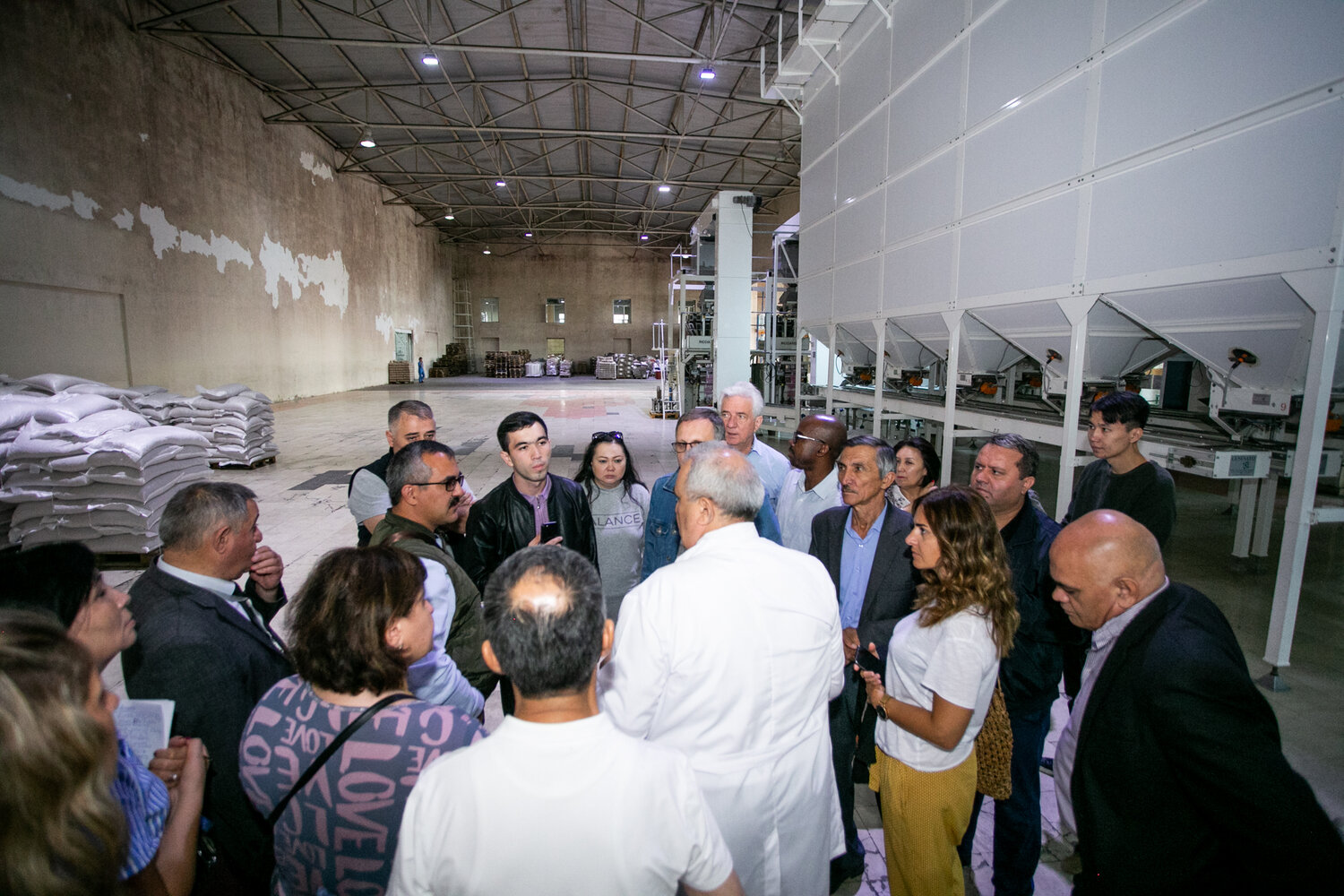
Photo: Touring a flour mill provides insight into the flour fortification process (FFI)
Our Goal
Reach 56 million people with fortified wheat flour over the next 5 years

Photo: Fabian Kron
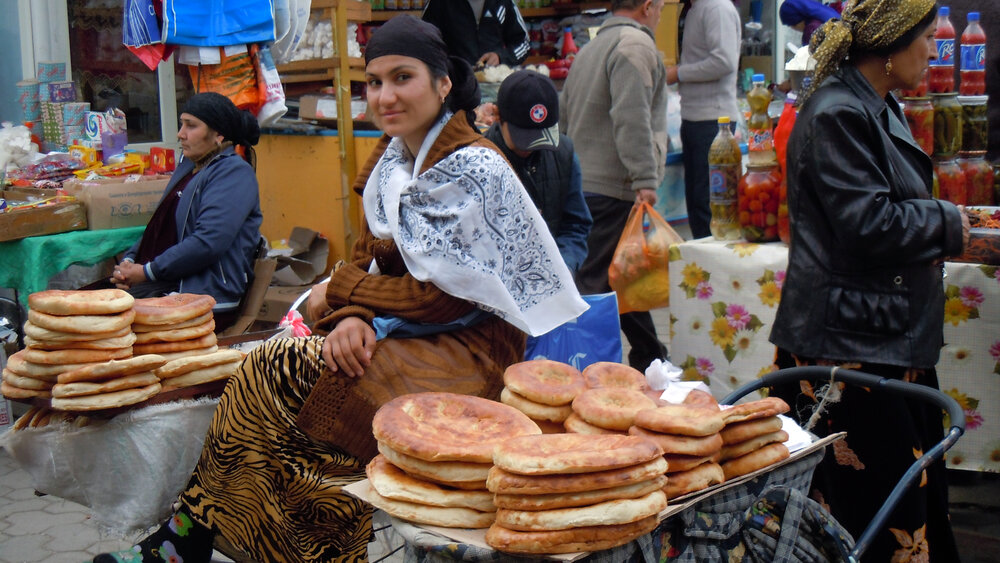
Region Profile
From Portugal to Russia, Europe is often viewed as a more developed part of the world where the clinical signs of vitamin and mineral deficiencies are not prevalent. In reality, however, certain countries in this region are still characterized by deficiencies at a level of public health significance which deserve attention. See the Global Fortification Data Exchange for information on when the country’s legislation was passed and whether the country also fortifies cooking oil and salt.
Wheat is the most commonly consumed grain in this region. Fortifying wheat flour in Europe and Central Asia is especially appropriate given high consumption of bread and pasta. In addition, common fortification challenges, such as non-industrial mills and an underdeveloped transportation infrastructure, are not evident here.
Adding vitamins and minerals to food is permitted in the European Union through regulation 1925/2006.
The United Kingdom has fortified wheat flour with iron and other key nutrients since the 1940s. In June 2019, it began seeking views on a proposal to add folic acid to flour.
Turkmenistan and Uzbekistan have fully implemented mandatory programs to fortify wheat flour. Kazakhstan, Kosovo, Kyrgyzstan, and Moldova each have wheat flour fortification mandates that are not yet fully implemented.
About 4500 pregnancies in the European Union are affected by a birth defect of the brain and spine every year, and an estimated 72% of the pregnancies are terminated. From 1980 to 2012, Europe saw no decline in these birth defects despite efforts to increase folic acid supplement intake.
For more information on how fortifying flour with folic acid (a form of vitamin B9) could be used throughout Europe to prevent birth defects of the brain and spine, see the following three documents:
In Switzerland, about 250 food products are voluntarily fortified with folic acid said, Erich P. Meyer, one of the founders of a national campaign to increase awareness about the need for folic acid intake. At one time Ireland had extensive voluntary fortification of foods with folic acid, but the percentage of fortified foods has decreased, and the incidence of birth defects of the brain and spine is increasing. Also, older adults in Ireland have a high prevalence of deficiency of vitamin B12 and folate (another form of vitamin B9).
In Europe, we frequently collaborate with two key partners – the International Federation for Spina Bifida and Hydrocephalus (IF) and UNICEF. Both entities have significant experience and knowledge related to country-specific flour fortification efforts in the region.
The countries in this region and the legislative status of grain fortification are listed below. Click on the country name to see more information.
Fortification Legislation Status
Click on any of the column headings to sort the list by country, wheat flour, maize flour, or rice.
| Country | Wheat flour | Maize flour | Rice |
|---|---|---|---|
| Albania | - | - | - |
| Andorra | - | - | - |
| Armenia | - | - | - |
| Austria | - | - | - |
| Azerbaijan | - | - | - |
| Belarus | - | - | - |
| Belgium | - | - | - |
| Bosnia and Herzegovina | - | - | - |
| Bulgaria | - | - | - |
| Channel Islands | - | - | - |
| Croatia | - | - | - |
| Cyprus | - | - | - |
| Czech Republic | - | - | - |
| Denmark | - | - | - |
| Estonia | - | - | - |
| Faroe Islands | - | - | - |
| Finland | - | - | - |
| France | - | - | - |
| Georgia | - | - | - |
| Germany | - | - | - |
| Gibraltar | - | - | - |
| Greece | - | - | - |
| Greenland | - | - | - |
| Hungary | - | - | - |
| Iceland | - | - | - |
| Ireland | - | - | - |
| Isle of Man | - | - | - |
| Italy | - | - | - |
| Kazakhstan | Mandatory | - | - |
| Kosovo, Republic of | Mandatory | - | - |
| Kyrgyzstan | Mandatory | - | - |
| Latvia | - | - | - |
| Liechtenstein | - | - | - |
| Lithuania | - | - | - |
| Luxembourg | - | - | - |
| Macedonia, The former Yugoslav Republic of | - | - | - |
| Malta | - | - | - |
| Moldova, Republic of | Mandatory | - | - |
| Monaco | - | - | - |
| Montenegro | - | - | - |
| Netherlands | - | - | - |
| Norway | - | - | - |
| Poland | - | - | - |
| Portugal | - | - | - |
| Romania | - | - | - |
| Russian Federation | - | - | - |
| San Marino | - | - | - |
| Serbia | - | - | - |
| Slovakia | - | - | - |
| Slovenia | - | - | - |
| Spain | - | - | - |
| Svalbard and Jan Mayen Islands | - | - | - |
| Sweden | - | - | - |
| Switzerland | - | - | - |
| Tajikistan | Mandatory | - | - |
| Turkmenistan | Mandatory | - | - |
| Türkiye | - | - | - |
| Ukraine | - | - | - |
| United Kingdom of Great Britain and Northern Ireland | Mandatory | - | - |
| Uzbekistan | Mandatory | - | - |
| Vatican City | - | - | - |
Our definition of legislative status:
Mandatory: Country has legislation that has the effect of mandating fortification of one or more types of wheat or maize flour or rice with at least iron or folic acid.
Voluntary: Country has standard for fortification, but fortification is not mandatory.
If the information we have is incorrect, please send updated information to info@ffinetwork.org






